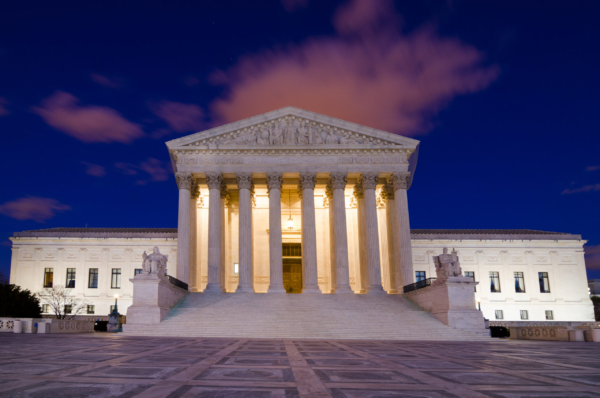WASHINGTON, D.C. — A coalition of civil rights groups are calling upon the U.S. Supreme Court to affirm that South Carolina’s congressional map is racially gerrymandered, in violation of the 14th Amendment.
Southern Coalition for Social Justice — alongside The Lawyers’ Committee for Civil Rights Under Law, The Leadership Conference on Civil and Human Rights, The Leadership Conference Education Fund, Asian Americans Advancing Justice, Asian American Legal Defense and Education Fund, Campaign Legal Center, Dēmos, and The League of Women Voters of the United States — submitted an amicus curiae brief to the U.S. Supreme Court on August 18, 2023 related to Alexander et al. v. South Carolina State Conference of the NAACP et al.
Alexander began in 2022, when the South Carolina State Legislature adopted congressional maps that moved hundreds of thousands of Black residents into new districts, carefully removing their power to elect lawmakers of their choice. The American Civil Liberties Union, along with the ACLU of South Carolina, NAACP LDF, and Arnold & Porter, sued on behalf of the South Carolina NAACP and affected voters and the district court after an eight-day trial ruled the maps, specifically the new configuration of Congressional District 1, were unconstitutional.
The state has appealed to the Supreme Court, claiming it moved Black voters for “partisan” reasons and arguing for a raised standard of proof for racial gerrymandering claims when race and partisanship are intertwined. However, as the amicus brief explains, this argument has no merit and the Supreme Court should reject this effort to make the already difficult process of showing an impermissible racial gerrymander more difficult.
“Certainly, partisanship and race are increasingly correlated, particularly for Black voters and other voters of color,” the brief states. “But the correlation between race and party does not insulate excessive race-based redistricting decisions from judicial scrutiny. Rather… it is the very correlation between race and party that heightens the need for even closer judicial scrutiny of decisions that are purportedly purely partisan in nature”
Click here to read the full brief.
Based on extensive precedent, the brief also shows that South Carolina legislators cannot hide behind a presumption of “good faith” in their redistricting when the evidence and other factors contradict their testimony about a lack of racial motivation.
“Lawmakers cannot be permitted to avoid the consequences of blatant racial gerrymanders simply by claiming partisanship or touting a supposed race-blind mapping approach,” said Jeff Loperfido, Interim Chief Counsel for Voting Rights at SCSJ. “The facts and the law here are clear. The Supreme Court now has the opportunity to affirm this long-standing precedent around racial gerrymandering claims and strike down South Carolina’s unconstitutional map.”
The matter is scheduled for oral argument on October 11, 2023 and is expected to be decided next term.

